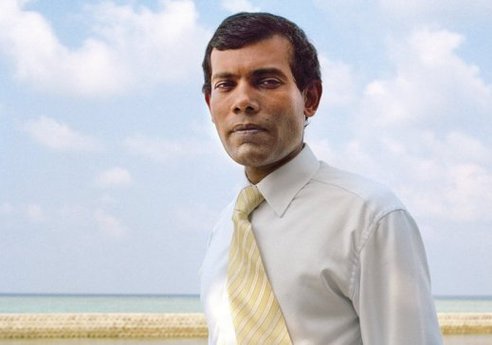(Article contributed to the blog by HE Mr Mohamed Nasheed, Former President of the Republic of Maldives. President Nasheed writes that democracy is the single most important adaptation strategy to climate change. President Nasheed also states the policies and strategies his administration employed to bring the issue of climate change to the forefront of global discussions. President Nasheed also outlines pragmatic policies and actions that will incentivize positive contributions by governments and institutions in combating climate change.)
The Maldives is one of the world’s most climate-vulnerable nations, but was also one of the most ambitious countries in terms of policies to combat global warming. In 2009, I convened an underwater cabinet meeting in the Maldives. The effect was symbolic but the message was serious – that unless the world moves to take decisive action on climate change, countries like the Maldives will cease to exist – lost forever beneath the rising seas. In order to lead by example, the then Government also announced the Maldives’ determination to become the world’s first carbon-neutral country.
Climate change is an urgent and real threat not only for the Maldives. It knows no borders nor respects a nation’s sovereignty. It is a truly global issue. The urgency of the crisis is evident wherever you look today. However, as well as focusing on the problem, we must also direct our attention – and the focus on international financing mechanisms – on the solution. That solution is carbon neutral economic growth and development.
I have always maintained that it is crucial for donors and international organisations to create governance and finance structures that encourage Governments to do more. Governments must be rewarded for initiating positive, low-carbon work. The financial structures must encourage politicians to cut ribbons on new power plants, factories or research facilities – as long as those ribbons are green. We must look beyond the usual narrative of cutting down emissions and redirect the discussion towards ramping up green investments. Let’s stop asking politicians not to do bad things, and start asking them to do more positive things. The Maldives’ carbon neutral policy was based on such a positive agenda.
I was able to advocate for progressive action both in the Maldives and outside – only because people in the Maldives wanted it that way. In 2008, Maldivians, for the first time, voted in democratic elections. During those elections, Maldivian rejected dictatorship and voted for democracy. They wanted to hear new things. They wanted new ideas to address our problems. Democracy gave people a voice. Citizens were empowered to help shape their country, and help shape the world. I believe that Maldivians don’t want to be seen as climate victims – they want to be seen as victors in the low carbon economy of the future. It’s a new nationalism that has begun to emerge – nationalism that’s built on the foundations of a democratic system, where Maldivians take pride in their Government leading in important global matters.
I also believe that democracy is the single most important adaptation strategy for global warming. Democracies, with pluralistic political systems, active civil societies, and public participation are far better able to adapt to climate change than are rigid, narrow political frameworks. Democracy becomes a force of transparency and thus ensures funds available for adaptation are spent on the right projects.
For the Maldives, it doesn’t matter how small our nation is. We know we can have a loud voice on climate issues. But recent political events have undermined our ability to advocate on for climate action. The government that took power in a coup on 7 February is illegitimate. It is unable represent the Maldives to the outside world because other countries don’t respect the new leadership, nor will they listen to it. If we are to resume our international role in climate change, and if we are to create a strong, resilient, carbon-neutral and dynamic economy and society, then democracy must be re-established as soon as possible – through the holding of fresh elections. I may or may not win that election. But that is not the point. The point is the people will have spoken and it is the people who, in a democracy, know best.

